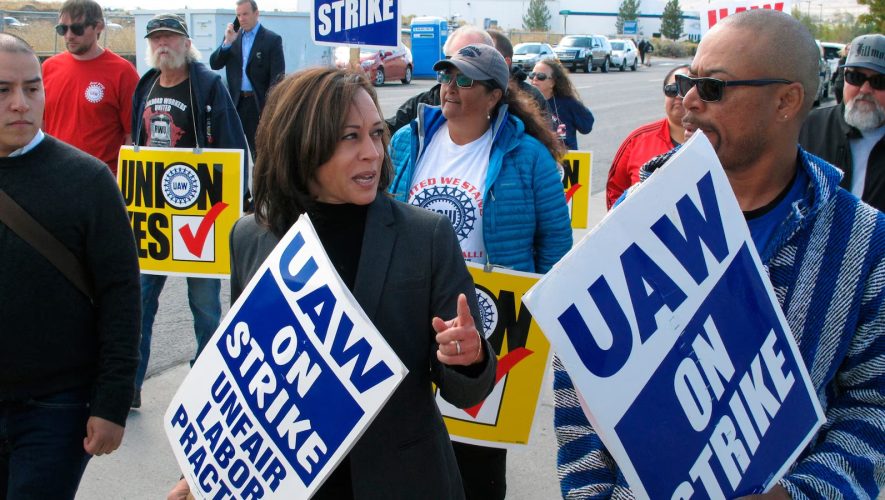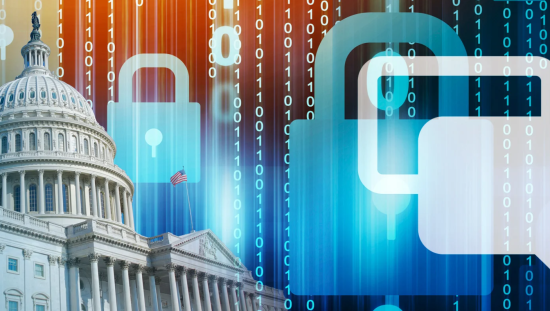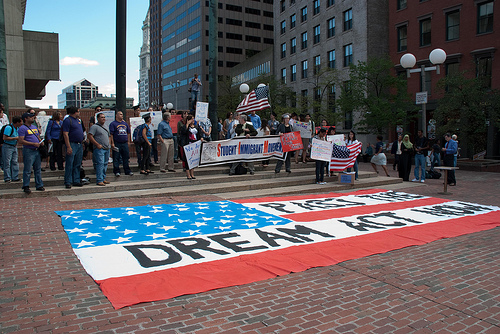One in ten US workers belong to labor unions, representing 14.4 million Americans and over 10 million eligible voters. Unions have held a long-standing presence in political efforts to win over the working class in the US, typically championing left-wing campaigns. But the tide is turning for the Democratic Party, whose growing unpopularity among the working class leaves unions politically fractured.
Democrats are eager to reestablish ties with unions in their efforts to win the 2024 presidential election and “preserve democracy” as we know it. In 2021, President Biden announced that he “[intended] to be the most pro-union president leading the most pro-union administration in American history.” And in the past four years, he’s followed up on his claims; under the Biden-Harris Administration, unions leverage more political capital than they’ve had in decades. In 2023, President Biden made a visible commitment to the United Auto Workers (UAW) in their strike against General Motors, Ford, and Stellantis by becoming the first US president to walk a picket line—a calculated risk that generated both acclaim from progressives and derision from political moderates.
Former President Trump, on the other hand, pushed forth a series of anti-union legislation during his time in office. His orders harmed unions’ abilities to represent workers, opposed any increase in the federal minimum raise, and appointed union-busters to critical roles impacting the Department of Labor and the National Labor Relations Board. From a policy standpoint, Trump exemplifies the antithesis of union goals.
However, the Democratic Party’s fatalistic rhetoric, heavy messaging, and bold moves are unconvincing to unions whose members are reluctant to place their faith in a party frequently characterized as performative, out-of-touch, and ineffective. Despite the fact that Biden’s pro-union capital has mostly transferred over to Democratic nominee and sitting Vice President Kamala Harris—whose campaign attempts to highlight endorsements from the country’s most influential union leaders—recent poll averages show Harris losing non-college-educated voters by almost twelve points: a gap greater than Biden’s eight-point loss in 2020 and Clinton’s seven-point loss in 2016.
The problem with Democratic appeals to union workers lies with their messaging, not their policies. Democratic politicians push far more pro-union legislation than their Republican counterparts, but their rhetoric fails to emphasize industrial policies in favor of overused talking points aimed at professional-class concerns. Democrats cannot take union voters for granted. To win over the working class, they have to seek out their critics instead of hiding behind their supporters.
Teamsters’ Strategic Indecision
The International Brotherhood of Teamsters (“Teamsters”) is America’s largest, most diverse union with 1.3 million members and counting. Teamsters has historically offered significant support for the Democratic Party, representing workers from nearly every occupation in every sector. However, at the end of September, Teamsters declined to endorse a presidential candidate for the first time since 1996—also marking the first time they had refused to endorse a Democratic candidate since 1988. In July, Teamsters General President Sean O’Brien became the first leader of the organization to address the Republican National Convention, emphasizing that the Teamsters aren’t “beholden” to either party and praising Trump for being “one tough SOB” in the face of his assassination attempts.
These moves pivot away from the pro-Harris messaging of Teamsters chapter leaders and other unions across the country, leaving the Democratic Party “pissed off” and “igniting an internal rebellion.” Both prior and present Teamsters leaders have openly criticized O’Brien for his shift, referring to his announcement as a failure of leadership, an embarrassment, and a betrayal to its members.
In spite of overwhelming judgment and condemnation, O’Brien defends the organization’s choice by claiming that neither candidate has committed to their mission. When questioned about the Biden-Harris Administration’s 36 billion dollar bailout to rescue union pension plans, O’Brien asserted that Teamsters appreciated the funding, but felt no obligation to extend Democratic support.
“Yes, they fixed the problem, but that problem was created by the people that fixed the problem, and they don’t want to recognize that…I broke my mother’s window playing street hockey in 1980, and for 40 years she’s been asking me to fix it. I finally fix it. Should I look for praise for fixing a problem that I helped create?”
In his statement, O’Brien refers to Democratic legislation that Biden signed in 1980 which passed trucking deregulations and cost 400,000 jobs. He argues that this move placed excess strain on pension funds, reframing Biden’s bailouts as a long-overdue payment instead of a praiseworthy donation.
O’Brien was likely referring to the Motor Carrier Act of 1980 (“MCA”), though he did not cite the legislation behind his statements. The MCA brought the trucking industry into the free enterprise system to enhance opportunities for independent truckers and lower prices for consumers—also leading to layoffs for larger trucking companies who couldn’t afford to provide both cost-effective services and competitive wages. However, Biden’s track record—and political power—as a Delaware Senator forty years ago vastly differs from his current economic platform and ability as President of the United States.
Moreover, Biden’s political past has little to do with Harris’ political future. Current union voters may be misled by these anecdotes, spread by someone they trust on a national scale. While Biden’s progressivism has shifted since his time as a senator, Harris’ political career has remained steadfast in its commitment to future-forward policies: especially for union workers.
With an abundance of conflicting information from both parties, Teamsters’ decision to remain indecisive comes directly from their members. According to an electronic poll of over 35,000 union workers, only 34 percent of Teamsters plan to vote for Vice President Harris, while 59.6 percent plan to vote for Former President Trump. The disconnect between union leaders and union members suggest that the Biden-Harris Administration and the Harris presidential campaign need to focus less on “trickle-down” campaigns, and more on grassroots, bottom-up appeals.
Freedom over Democracy
For millions of voters, politics is a bleak subject. Disaffected voters overwhelmingly prevail in US households: according to the Pew Research Center, over 60 percent of Americans have no confidence in the future of US politics, and 28 percent dislike both major political parties. Nearly 80 percent believe that politicians do not spend enough time discussing issues that actually impact the state of the nation. Policy-wise, there is little faith across the board for both Democrats and Republicans. Yet, the Trump-Vance campaign has managed to separate itself from its political missteps and brand itself as the anti-establishment ticket—victimized by the political elite. And as more Democrats vilify Trump, more conservatives buy into his persecuted narrative.
Though several Democratic leaders have warned that a Trump presidency would be the end of democracy in an urgent appeal to voters, Harris has taken a more forward-looking and uplifting approach to her speeches. While Biden referenced “democracy” 386 times and “freedom” only 175 times in his reelection efforts, Harris—thus far—has referenced “freedom” nearly 60 times and “democracy” only around 12 times. Instead of focusing on what Americans lose by voting for Trump, she’s pivoted to what they can gain from voting for her.
And this strategy works: the promise of freedom sounds more optimistic than the threat of autocracy. But its overpolished ambiguity rings empty in the ears of voters exposed to the Trump-Vance campaign’s clear-cut pro-worker rhetoric, which has spread to formerly anti-union conservative politicians like Sen. Josh Hawley from Missouri. Even if the Trump-Vance policy platform clashes with the Trump-Vance narrative, the Harris-Walz campaign must effectively and directly communicate their pro-union narrative for their policy platform to matter at all. They must speak with voters on the ground, put their pro-union words into actions, and use words that inspire confidence, not doubt.
Although union support for Trump has grown, Americans continue to believe that the Democratic Party is better for union members. Teamsters chapters across the US, including every single Florida chapter and chapters in battleground states, have endorsed Harris. If Democrats turn to grassroots campaigns and meet union members where they are, the Harris-Walz campaign has a stronger chance of convincing skeptics of their authenticity. Vice President Harris cannot run on the brand of anti-establishmentarianism—she’s already part of the establishment. Instead, she must speak in clear terms, acknowledge her missteps, and propose realistic efforts for change.
The Democratic Party still has the chance to mend its ties with union workers; this support is contingent upon the satisfaction of working class Americans; polls sway back and forth, public perception is malleable, and Democrats cannot take unions for granted. Union members, if overlooked, may be a deciding force in the 2024 presidential election.



